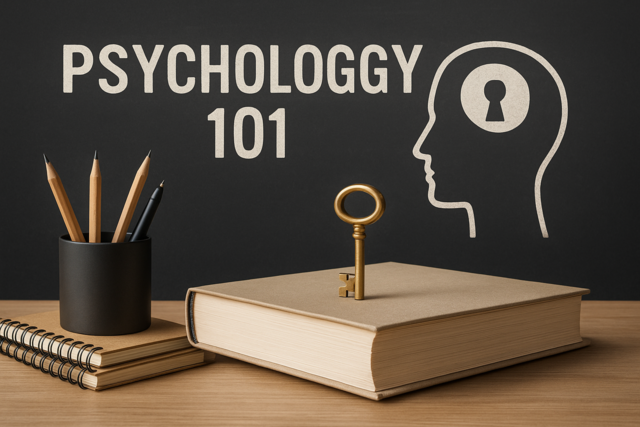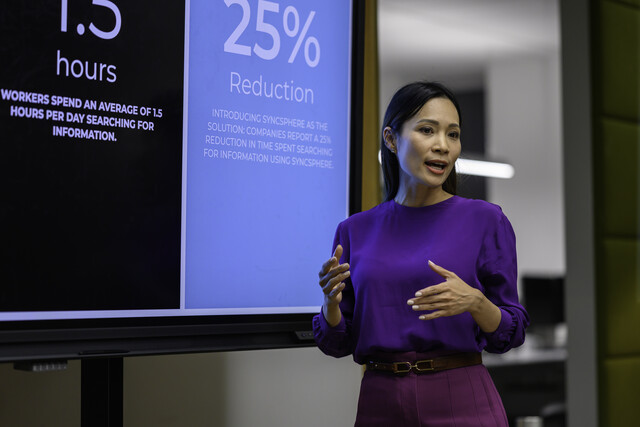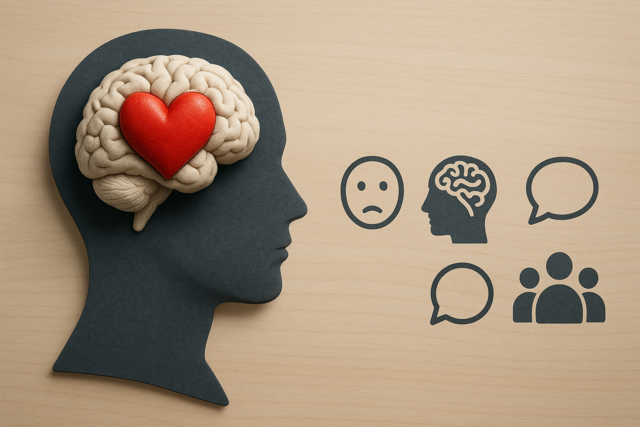Introduction to Abnormal Psychology
Unlock the Mysteries of the Mind: Dive into the World of Abnormal Psychology

6 Hours average completion time
0.6 CEUs
16 Lessons
19 Exams & Assignments
72 Discussions
15 Videos
17 Reference Files
Mobile Friendly
Last Updated January 2026
Are you ready to embark on a transformative journey that will not only deepen your understanding of the human mind but also equip you with the tools to make a real difference in people's lives? Our Abnormal Psychology course is designed to take you on an intellectual and emotional exploration of the mind's most complex, misunderstood, and sometimes hidden aspects. It's a powerful learning experience that goes beyond traditional education, connecting you with cutting-edge knowledge, impactful case studies, and the tools to bring about meaningful change, whether in your personal life or in your career.
Why This Course Stands Out
Imagine having the ability to understand, diagnose, and empathize with people facing the most challenging psychological disorders. Whether you're a future psychologist, a social worker, a counselor, or simply someone passionate about understanding human behavior, this course is your gateway. It opens the door to a deeper world of mental health, one that delves into the latest scientific discoveries, the rich history of mental health treatment, and the future of compassionate, effective therapy.
We recognize that psychology is not just an academic subject--it's a deeply personal field, full of human stories. Every lesson is designed to keep you engaged, and the content is meticulously curated so that, by the time you finish, you'll feel like you've gained an entirely new perspective on life itself. You'll see the world with clearer eyes, and more importantly, you'll be prepared to help others see it too.
The Curriculum: A Deep Dive into the Human Psyche
Our course offers 15 compelling lessons that are anything but your average textbook material. Each lesson is crafted with care, combining theory, real-life applications, and the latest research to provide you with a well-rounded understanding of abnormal psychology. You won't just read about these conditions; you'll walk through the experiences of people living with them. This course will not only educate you but inspire you to engage with the content on a deeper level.
From exploring the nuanced differences between anxiety and personality disorders to understanding the profound impact of schizophrenia on a person's worldview, you'll encounter topics that challenge your preconceived notions and broaden your empathy. Mental illness isn't black and white, and this course reflects that. It's not about labeling individuals--it's about truly understanding the diverse experiences of the human mind.
What You Will Learn
We start by laying the foundation with Introduction to Abnormal Psychology, where you'll explore what abnormal really means in the context of psychology, dispelling myths and misconceptions. You'll then journey through history with The Evolution of Mental Illness Treatment, gaining insight into how far we've come--from brutal treatments in the past to today's compassionate, evidence-based therapies.
By the time you dive into Anxiety Disorders, Eating Disorders, and Personality Disorders, you'll not only understand their symptoms and causes but also the human experience behind the diagnoses. For example, when you learn about obsessive-compulsive disorder (OCD), you won't just memorize definitions--you'll understand what it feels like for someone who has to wash their hands dozens of times a day, not out of cleanliness, but because their mind won't let them stop.
Hope and Healing
A crucial aspect of this course is our focus on Treatment Options and the future of mental health care. You'll explore the latest innovations, from traditional psychotherapy to cutting-edge genetic research that's opening new doors for treatment. More than just clinical approaches, we delve into holistic methods--yoga, diet, meditation--that are becoming an integral part of how we view mental wellness today.
As mental health awareness increases globally, this course doesn't just prepare you to understand disorders--it arms you with the knowledge to inspire hope, healing, and empathy. Whether it's in a therapy room or in a casual conversation with a friend, the impact of this course will resonate in the way you see mental illness: not as something foreign or 'other,' but as a natural part of the human experience.
A Personal and Professional Transformation
This is more than just a course--it's an invitation to become a part of something greater. The content is academically rigorous, but also deeply personal and accessible. It's crafted for students, professionals, and lifelong learners who are passionate about making a real difference in the world. When you take this course, you're not just signing up for lessons--you're embarking on a life-changing journey. You will learn not just for your own personal growth, but to be equipped to help others as well.
Our Abnormal Psychology course doesn't merely give you knowledge; it prepares you for action. It's a calling to become more empathetic, more informed, and more empowered. Whether you aim to become a mental health professional or simply enrich your understanding of the mind, this course provides you with the wisdom, skills, and perspective necessary to positively impact the world around you.
Your Future Awaits
By the end of this course, you'll have more than just facts and figures--you'll have a deep, nuanced understanding of the challenges people face with mental illness and the tools to make a difference. This course offers something unique: not just education, but transformation. You will walk away from this experience with an expanded mind and an open heart, ready to contribute meaningfully to the field of mental health, or simply to be a more compassionate human being.
- Awareness of innovative mental health solutions
- Comprehension of evidence-based therapies
- Skills in identifying symptoms of mental disorders
- Knowledge of historical mental health treatments
- Application of holistic treatment methods
- Insight into diverse psychological conditions
- Empathy for individuals with mental health issues
- Understanding of psychological disorder characteristics
- Ability to analyze mental health case studies
-

Home Safety
-

Sociology 101
-

Mastering Conversation Skills
-

Conflict Resolution
-

Positive Parenting Techniques
-

Domestic Violence Awareness
-

Introduction to Child Psychology
-

How to Deal with Difficult Personalities
-

Understanding Learning Styles
-

Understanding Childhood Obesity
-

Psychology 101
-

Behavior Management 101
-

Innovative Thinking Skills
-

Introduction to Counseling Psychology
-

Introduction to Organizational Psychology
-

Workplace Sexual Harassment in the #MeToo Era
-

Stress Management
-

Motivational and Public Speaking
-

Healthy Relationships
-

Assertiveness Training
-

Child Safety for Parents
-

Child Abuse Recognition, Investigation, and Protection
-

Anger Management Techniques
-

Emotional Intelligence
-

Critical Thinking Skills